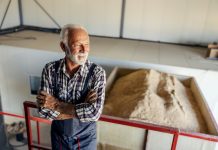
In a new study from La Jolla Institute for Immunology, researchers found that T cells from people who have recovered from COVID-19 or received the Moderna or Pfizer-BioNTech vaccines are still able to recognize several concerning SARS-CoV-2 variants.
They found that both CD4+ “helper” T cells and CD8+ “killer” T cells can still recognize mutated forms of the virus.
This reactivity is key to the body’s complex immune response to the virus, which allows the body to kill infected cells and stop severe infections.
This study suggests that the impact of mutations found in the variants of concern is limited.
In the study, the team used data on four of the most prevalent COVID-19 variants.
Ongoing studies have been expanded to a larger panel of variants, including the Delta (B.1.617.2) variant, which became prevalent after this study had been initiated.
The team analyzed T cells from three different groups: People who had recovered from COVID-19, people who had received either the Moderna or Pfizer-BioNTech vaccines, and people never exposed to SARS-CoV-2 (from samples taken before the pandemic).
Both the recovered subjects and the vaccinated subjects were likely to have T cells that recognized the “ancestral lineage” of SARS-CoV-2.
This was the original strain that emerged at the beginning of the pandemic; however, the virus has mutated since December 2019, and several variants have been identified as variants of concern.
The question was whether people with T cells trained to recognize the ancestral strain would also recognize the new variants.
The researchers tested T cell responses from the donor groups against four prominent variants: Alpha (B.1.1.7), Beta (B.1.351), Gamma (P.1) and Epsilon (B.1.427/B.1.429).
The researchers found that both vaccinated individuals and the recovered patients had cross-reactive T cells that could target these variants.
That is good news for anyone who has received one of the two mRNA vaccines and for anyone who has recovered from any variant of the virus.
The team says this research highlights the importance of enlisting T cells in fighting SARS-CoV-2.
COVID vaccines do a fantastic job of making antibodies that stop SARS-CoV-2 infections, but some of the vaccines do less well at stopping infections from variants.
The group is now studying a much larger group of 12 different Variants of Concern and Variants of Interest (VOIs), including the Delta variant (B.1.617.2), Eta (B.1.525), Iota (B.1.526), Kappa (B.1.617.1), Lambda (C37) and the variants B.1.526.1, B.1.617.3, R1 and B.1.1.519.
The study is published in Cell Reports Medicine. One author of the study is Professor Alessandro Sette, Dr.Bio.Sci.
Copyright © 2021 Knowridge Science Report. All rights reserved.



